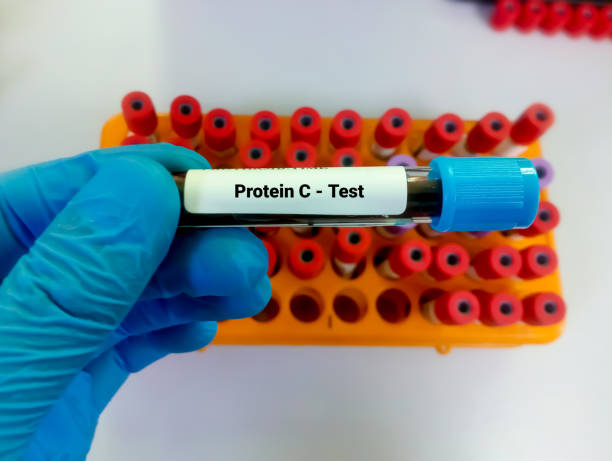
When it comes to human health, protein stands out as a vital thread, weaving through various bodily functions and systems. From building and repairing tissues to supporting immune function and hormone production, protein plays an indispensable role in maintaining overall health and well-being. However, the significance of protein often goes unnoticed until its deficiency manifests in various symptoms, emphasizing the importance of early detection through blood tests.
Proteins are the building blocks of life, composed of amino acids essential for the growth, repair, and maintenance of cells, tissues, and organs. Without an adequate intake of protein, the body's ability to perform these essential functions is compromised, leading to a cascade of detrimental effects on health.
Protein Deficiency
One of the most evident consequences of protein deficiency is the loss of muscle mass and strength. Without sufficient protein intake, the body breaks down muscle tissue to obtain the necessary amino acids, resulting in muscle wasting and weakness. This can significantly impact physical performance, mobility, and overall quality of life, particularly in older adults.
Moreover, protein deficiency can impair the immune system, rendering the body more susceptible to infections and illnesses. Since many components of the immune system, such as antibodies and immune cells, are made up of proteins, inadequate protein intake can compromise immune function, leaving the body vulnerable to pathogens.
Furthermore, protein plays a crucial role in hormone regulation, neurotransmitter synthesis, and enzyme activity, all of which are essential for maintaining hormonal balance, mood stability, and metabolic processes. A deficiency in protein can disrupt these regulatory mechanisms, contributing to hormonal imbalances, mood disorders, and metabolic dysfunction.
Diagnosis of Protein Deficiency
Detecting protein deficiency in its early stages is paramount for preventing the onset of adverse health effects. Blood tests offer a valuable tool for assessing protein status and identifying deficiencies before they escalate into more severe health problems.
Blood Tests
One of the primary blood tests used to evaluate protein status is the total protein test, which measures the overall concentration of proteins in the blood. A low total protein level may indicate insufficient protein intake or malabsorption issues, while a high total protein level could signal dehydration or certain medical conditions, such as multiple myeloma.
Another important blood test for assessing protein status is the serum protein electrophoresis (SPEP) test. This test measures the levels of various proteins in the blood, including albumin and globulins. Low levels of albumin, the most abundant protein in the blood, can indicate malnutrition or liver disease, while alterations in globulin levels may suggest immune disorders or inflammatory conditions.
In addition to these tests, specific markers, such as prealbumin and transferrin, can provide insights into protein synthesis and nutritional status. Low levels of these markers may indicate protein deficiency or malnutrition, prompting further evaluation and intervention.
Significance of Early Detection
Early detection of protein deficiency through blood tests allows healthcare providers to intervene promptly with dietary modifications, nutritional supplements, or medical treatments to address the underlying cause and prevent further complications. By monitoring protein status regularly through blood tests, individuals can optimize their nutritional intake and safeguard their health against the adverse effects of protein deficiency.
In conclusion, protein is an essential nutrient that plays a critical role in maintaining overall health and well-being. Protein deficiency can have far-reaching consequences, impacting muscle mass, immune function, hormone regulation, and metabolic processes. Blood tests, such as serum protein electrophoresis and total protein tests, play a crucial role in detecting protein deficiency early, enabling timely intervention and treatment. By prioritizing adequate protein intake and monitoring protein status through blood tests, individuals can support their health and vitality for years to come.

